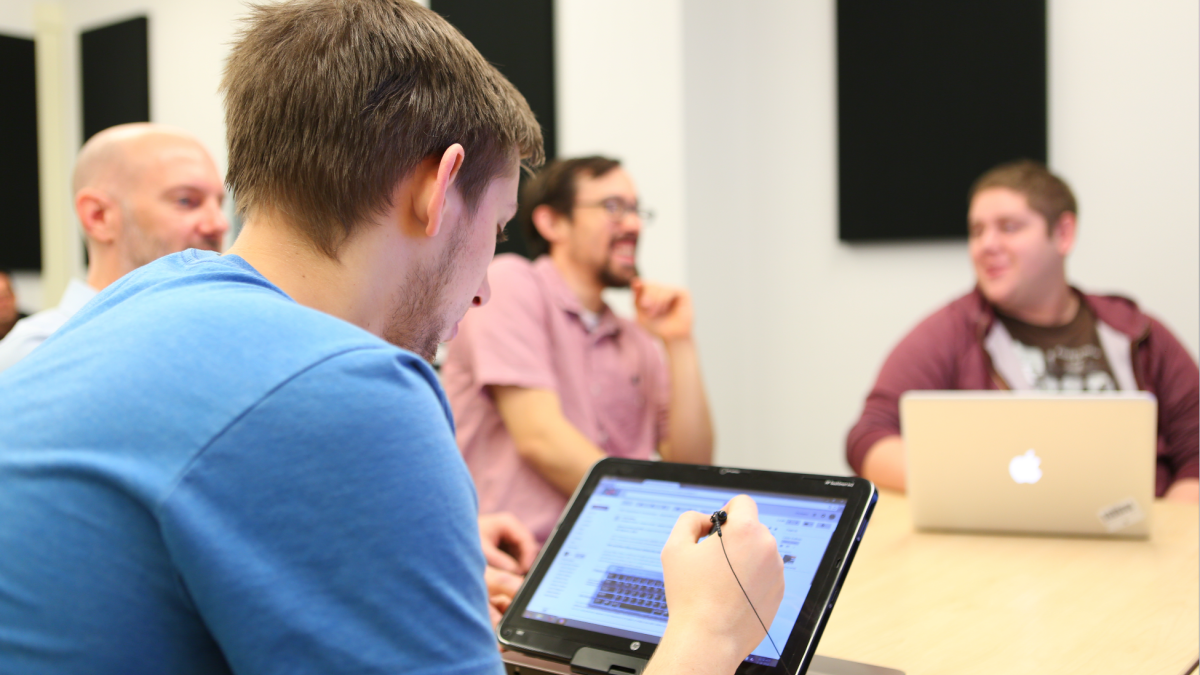ASU offers new graduate certificate in Computer-Assisted Language Learning

A new graduate certificate in Computer-Assisted Language Learning will be available to students this fall, focusing on how to apply technology in foreign language teaching.
The ability to understand and implement these new technologies in the classroom is no longer a desired qualification — it’s a requirement in today’s rapidly evolving digital world.
The certificate will be through the School of International Letters and Cultures (SILC), and co-directed by the English department. Andrew Ross, the head of SILC’s Learning Support Services, and Bryan Smith, associate professor of English, will direct the new program. The two have spent two years developing the courses and gathering all the resources to produce a unique certificate in CALL.
“This is intended to be a supplement [to their graduate degree] to demonstrate their ability to think creatively, with a strong theoretical background in computer assisted language learning,” Ross said. “Very few other colleges offer this type of program, or they’re often folded into another PhD program.”
The certificate will serve the needs of both SILC and English graduate students, including those in EFL (English as a Foreign Language) and TEFL (Teaching English as a Foreign Language).
Fifteen total credit hours will be required, made up of three core courses, one elective course and the Capstone culminating experience. Elective topics range from corpus linguistics to computer-mediated communication to instructional design. During their Capstone, students will apply their knowledge in a culminating project such as a research study, creating CALL-based learning materials or developing a specific tool. At the completion of the certificate, students will have a comprehensive e-portfolio of their work to add to their resúme.
The certificate will focus on aspects of second-language acquisition, understanding the field of CALL research, and how to implement technology for language learning in an integrative way.
Smith specializes in applied linguistics and has done extensive research on Computer-Assisted Language Learning (CALL). Smith and Ross run the annual AZCALL conference, a one-day event bringing together students and faculty involved with CALL to share their work and ideas. He believes students who have a CALL credential will be at a clear advantage in the job market over those who do not.
“Most importantly, our students will leave the program having the cutting-edge knowledge of how technology is shaping how languages are taught and learned across the globe,” Smith said.
The certificate will be available beginning in fall 2016. For more information, view the plan of study or contact Andrew Ross and Bryan Smith.
More Science and technology

4 ASU researchers named senior members of the National Academy of Inventors
The National Academy of Inventors recently named four Arizona State University researchers as senior members to the prestigious…

Transforming Arizona’s highways for a smoother drive
Imagine you’re driving down a smooth stretch of road. Your tires have firm traction. There are no potholes you need to swerve to…

The Sun Devil who revolutionized kitty litter
If you have a cat, there’s a good chance you’re benefiting from the work of an Arizona State University alumna. In honor of…

